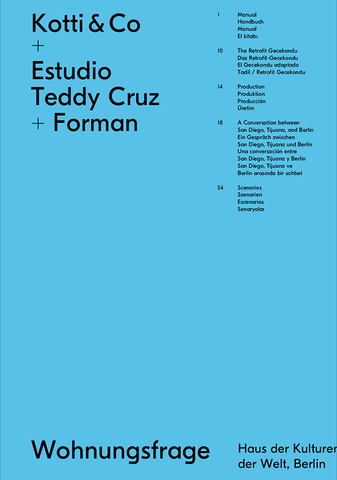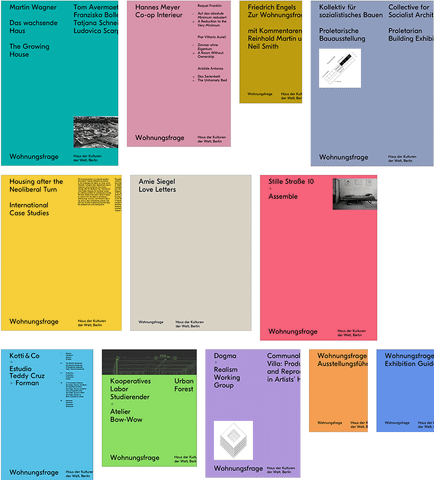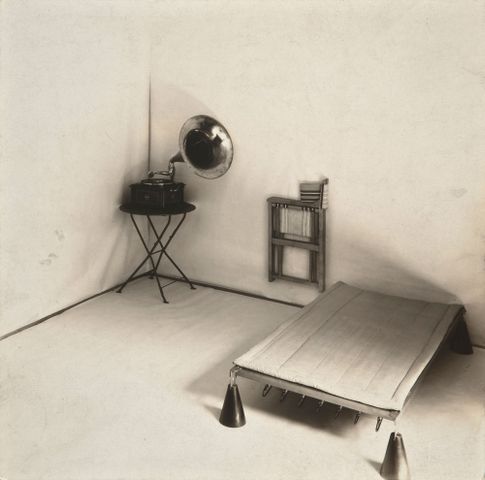Kotti & Co + Estudio Teddy Cruz + Forman

Authors: Kotti & Co, Ulrike Hamann, Sandy Kaltenborn, Estudio Teddy Cruz + Forman, and others
Design: Image Shift / Sandy Kaltenborn, Studio Matthias Görlich
Book: German
Booklet: German/English/Spanish/Turkish
ISBN 978-3-95905-050-0
EUR 20.00
Available at bookstores, the shop at the Haus der Kulturen der Welt and online at Spector Books.
One night, in 2012, the tenants’ initiative Kotti & Co built a gecekondu (an informal dwelling built overnight) at Kottbusser Tor in Berlin-Kreuzberg. In conjunction with wide-ranging protest actions, the initiative formed itself into the main venue for negotiating new rent and urban development policies and for tackling issues relating to migration, racism, and poverty. The book und deswegen sind wir hier documents the history of this social protest and the central role played by Kotti & Co. The supplement presents the result of the collaboration of Kotti & Co with architect Teddy Cruz and political scientist Fonna Forman within the context of the Wohnungsfrage project: a socio-spatial model that draws a connection between housing issues in Berlin and the informal design practices found in the Mexican border town of Tijuana.
*
With its Gecekondu, the Kotti & Co tenants’ initiative has been occupying the public square in front of the Kottbusser Tor in Berlin’s Kreuzberg district since 2012. Launched as a protest against high rents in the social housing sector, the initiative has now grown into an influential player in campaigning for changes in rent and urban-development policies.
As part of the Wohnungsfrage project, Kotti & Co engaged in a collaboration with architect Teddy Cruz and political theorist Fonna Forman to elaborate a housing model. The work of Estudio Teddy Cruz + Forman focuses on the living conditions and informal housing practices on the US–Mexico border. In San Diego and Tijuana, and then in Berlin, their discussions with Kotti & Co centered on the theme of housing in its broader context of immigration and marginalization. In their conversation, housing is opened up into its political, social, and economic dimensions.
This encounter yielded a design, which, incorporating the principles of the Gecekondu, expands and distributes them as an adaptable infrastructure made of retrofitted factory-produced shelving systems. It offers a strategy with which to bring informal urbanization and formal urban planning into a mutual exchange of knowledge and resources. This manual serves as a technical and conceptual guide to its possible functional and operational outcomes resulting from various application scenarios. Rather than providing an architectural solution to the housing problem, the Retrofit Gecekondu evolves into the locus of its negotiation for use, social organization, and the politics of affordability.

